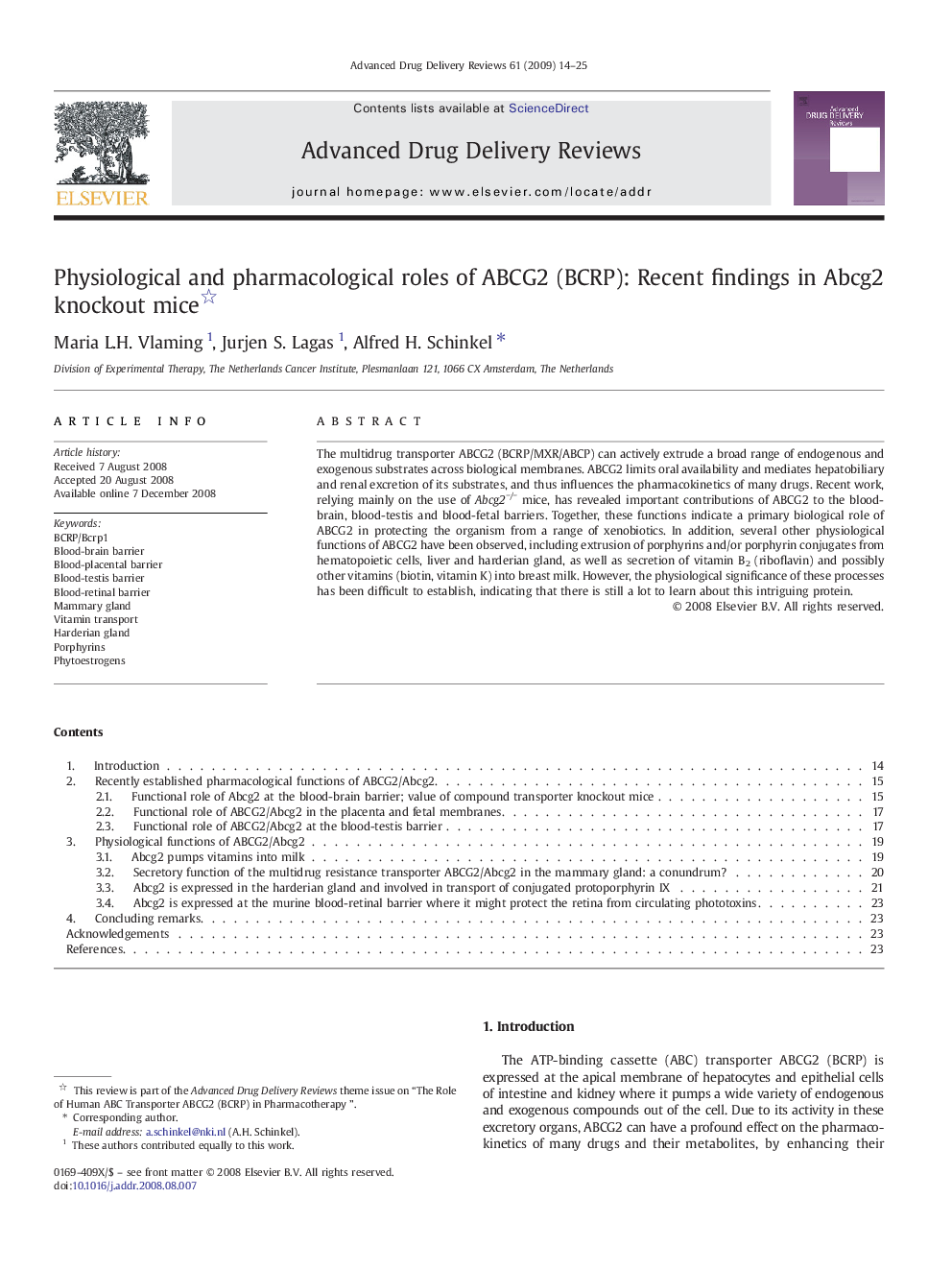| Article ID | Journal | Published Year | Pages | File Type |
|---|---|---|---|---|
| 2071698 | Advanced Drug Delivery Reviews | 2009 | 12 Pages |
The multidrug transporter ABCG2 (BCRP/MXR/ABCP) can actively extrude a broad range of endogenous and exogenous substrates across biological membranes. ABCG2 limits oral availability and mediates hepatobiliary and renal excretion of its substrates, and thus influences the pharmacokinetics of many drugs. Recent work, relying mainly on the use of Abcg2−/− mice, has revealed important contributions of ABCG2 to the blood-brain, blood-testis and blood-fetal barriers. Together, these functions indicate a primary biological role of ABCG2 in protecting the organism from a range of xenobiotics. In addition, several other physiological functions of ABCG2 have been observed, including extrusion of porphyrins and/or porphyrin conjugates from hematopoietic cells, liver and harderian gland, as well as secretion of vitamin B2 (riboflavin) and possibly other vitamins (biotin, vitamin K) into breast milk. However, the physiological significance of these processes has been difficult to establish, indicating that there is still a lot to learn about this intriguing protein.
